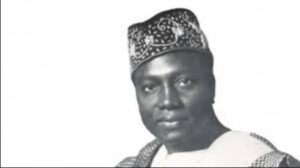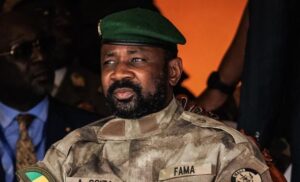Mali, located in West Africa, gained its independence from France on September 22, 1960. Since then, it has had several presidents, each contributing to the nation’s history in various ways. Below is a table listing the Presidents of Mali, arranged in order, along with the years of their tenure.
| No. | President | Tenure |
|---|---|---|
| 1 | Modibo Keïta | 1960 - 1968 |
| 2 | Moussa Traoré | 1968 - 1991 |
| 3 | Amadou Toumani Touré | 1991 - 1992 (Interim), 2002 - 2012 |
| 4 | Alpha Oumar Konaré | 1992 - 2002 |
| 5 | Dioncounda Traoré | 2012 - 2013 (Interim) |
| 6 | Ibrahim Boubacar Keïta | 2013 - 2020 |
| 7 | Bah Ndaw | 2020 - 2021 (Interim) |
| 8 | Assimi Goïta | 2021 - Present |
READ ALSO: Presidents That Have Ruled Niger Till Date
The First President:

Modibo Keïta served as the first President of Mali from 1960 to 1968. He was a prominent figure in the independence movement and played a crucial role in the establishment of the Republic of Mali.
Notable Achievements:
- Independence Leader: Keïta was instrumental in leading Mali to independence from French colonial rule.
- Pan-Africanism: He was a strong advocate of Pan-Africanism, promoting unity and cooperation among African nations.
- Economic Reforms: Keïta implemented socialist economic policies aimed at improving the country’s economic self-sufficiency and reducing foreign dependence.
Downsides:
- Economic Struggles: Despite his efforts, the economy faced significant challenges, including inefficiencies and shortages.
- Authoritarian Tendencies: Keïta’s regime became increasingly authoritarian, leading to political dissatisfaction and unrest.
- Overthrow: In 1968, Keïta was overthrown in a military coup led by Lieutenant Moussa Traoré, ending his presidency.
The Current President:

Assimi Goïta is the current President of Mali, assuming office in 2021 following a period of political instability. Goïta, a military officer, played a key role in the transitional government after leading coups in 2020 and 2021.
Notable Achievements:
- Transitional Leadership: Goïta has been pivotal in guiding Mali through a turbulent political transition, working towards stabilizing the government.
- Security Focus: His administration has prioritized security, particularly in addressing the ongoing insurgency and terrorism in the region.
- Economic Initiatives: Goïta has introduced initiatives aimed at reviving the economy and addressing poverty.
Downsides:
- Political Instability: The political situation remains fragile, with ongoing challenges to governance and public trust.
- Human Rights Concerns: There have been reports of human rights abuses and crackdowns on dissent under his leadership.
- Economic Hardships: Mali continues to face significant economic difficulties, with high unemployment and limited infrastructure development.
READ ALSO: Presidents That Have Ruled Mozambique Till Date
The Current Vice President: (Note: Mali does not have a Vice President position. Instead, it has a Prime Minister)
While Mali does not have a Vice President, the position of the Prime Minister serves as the head of government. The current Prime Minister is Choguel Kokalla Maïga, appointed in 2021.
Notable Achievements:
- Government Coordination: Maïga has been crucial in coordinating government activities and ensuring the implementation of the President’s policies.
- Economic Reforms: He has played a significant role in promoting economic reforms aimed at improving growth and development.
- International Relations: Maïga has worked to strengthen Mali’s international relations, securing partnerships and aid from various countries and organizations.
Downsides:
- Administrative Challenges: The Prime Minister faces challenges in administrative efficiency and bureaucratic hurdles, which can slow down policy implementation.
- Public Discontent: There has been public discontent over economic conditions and governance issues, reflecting broader frustrations within the country.
READ ALSO: Presidents That Have Ruled Angola Till Date
Conclusion
Mali’s political history is marked by a series of leadership changes, each with its unique challenges and achievements. From the first President, Modibo Keïta, to the current President, Assimi Goïta, the country has navigated a complex landscape of independence, economic development, security issues, and political transitions.
While progress has been made in various areas, Mali continues to face significant challenges that require ongoing efforts and reforms to ensure a stable and prosperous future for its citizens.
